In the fast-moving realm of AI in digital marketing, staying ahead is crucial. A major shift in recent times has been the inclusion of artificial intelligence (AI) into digital marketing plans. As businesses strive to enhance efficiency, personalize customer experiences, and optimize their campaigns, AI has emerged as a powerful ally.

Table of Contents
What is AI in Digital Marketing?
AI in digital marketing refers to the use of advanced technologies that enable machines to perform tasks that typically require human intelligence. In the context of AI in digital marketing, it encompasses various applications and tools that leverage machine learning, natural language processing, and other AI techniques to enhance marketing strategies and activities.
AI in digital marketing can involve tasks such as data analysis, personalization, automation, and optimization. It enables marketers to make data-driven decisions, understand customer behavior more deeply, and create more targeted and effective campaigns. Examples of applications of AI in digital marketing include predictive analytics, chatbots, personalized content recommendations, automated email campaigns, and dynamic advertising optimization.
Ultimately, the goal of incorporating AI in digital marketing is to improve efficiency, enhance the customer experience, and achieve better results by leveraging the capabilities of intelligent algorithms and automated processes.

How AI in digital marketing affects and how businesses can use it to stay ahead.
1.Personalized Customer Experiences:
AI enables marketers to create highly personalized customer experiences by analyzing vast amounts of data to understand individual preferences and behaviors. Machine learning algorithms can predict customer needs and deliver targeted content, recommendations, and offers. This level of personalization not only enhances customer satisfaction but also increases the likelihood of conversion and brand loyalty.
2.Data Analysis and Insights:
The sheer volume of data generated in the digital landscape can be overwhelming for marketers. AI, however, excels at processing and analyzing large datasets in real-time. This allows marketers to gain valuable insights into consumer behavior, trends, and market dynamics. By understanding these patterns, businesses can make data-driven decisions, refine their strategies, and allocate resources more effectively.
3.Chatbots and Virtual Assistants:
AI-powered chatbots and virtual assistants have become indispensable tools in digital marketing. These intelligent systems can engage with customers, answer queries, and guide them through the sales funnel. Chatbots provide instant responses, improving customer service and creating a seamless user experience. The ability to handle routine inquiries also frees up human resources for more complex tasks, contributing to operational efficiency.
4.Predictive Analytics for Lead Generation:
AI algorithms analyze past data to find patterns and predict what might happen in the future.AI In digital marketing, this capability is particularly valuable for lead generation. By understanding which leads are more likely to convert, businesses can focus their efforts on the most promising opportunities. This predictive approach streamlines the sales process, saving time and resources while improving conversion rates.
5.Dynamic Content Optimization:
AI tools can optimize digital content dynamically based on user behavior and preferences. For instance, AI can analyze how users interact with a website and adjust the content layout, images, and calls-to-action accordingly. This ensures that each visitor sees the most relevant content, increasing the chances of engagement and conversion.
6.Programmatic Advertising:
AI in digital marketing has revolutionized the world of advertising through programmatic advertising platforms. These platforms use machine learning to automate the buying of ad inventory in real-time, optimizing campaigns for maximum effectiveness. This results in better-targeted ads, reduced costs, and improved ROI for advertisers.
7.Hyper-Personalized Email Marketing:
AI has breathed new life into email marketing by enabling hyper-personalization. By analyzing user behavior and preferences, AI algorithms can tailor email content to individual recipients. This goes beyond basic segmentation, allowing marketers to send highly targeted and relevant messages. From product recommendations to personalized subject lines, AI enhances the effectiveness of email campaigns, increasing open rates and conversions.
8.SEO and Content Optimization:
Search Engine Optimization (SEO) is a critical aspect of digital marketing, and AI is playing a pivotal role in optimizing content for search engines. AI-powered tools analyze keyword trends, user search behavior, and competition to recommend strategies for content creation and optimization. This ensures that digital content is not only appealing to users but also aligns with search engine algorithms, improving organic search rankings.
9.Sentiment Analysis in Social Media:
Understanding public sentiment is crucial for effective social media marketing. AI-powered sentiment analysis tools can sift through massive amounts of social media data to gauge how people feel about a brand, product, or industry. Marketers can then adjust their strategies based on this real-time feedback, addressing concerns, capitalizing on positive sentiments, and staying ahead of emerging trends.
10.Enhanced Customer Targeting with AI Advertising Platforms:
AI-driven advertising platforms, such as Facebook Ads and Google Ads, leverage machine learning to optimize ad targeting. These platforms analyze user behavior, demographics, and online interactions to deliver ads to the most relevant audience. Advertisers can set specific parameters, and the AI algorithms continuously learn and adapt to maximize the impact of each advertising dollar spent
11.Fraud Detection and Prevention:
AI in Digital marketing is not without its challenges, and ad fraud is a significant concern. AI algorithms can detect irregularities in online advertising patterns and identify fraudulent activities. This includes click fraud, fake impressions, and other malicious practices. By implementing AI-powered fraud detection systems, marketers can ensure that their advertising budgets are used efficiently and that their campaigns reach genuine audiences
12.Continuous Learning and Adaptation:
One of the key strengths of AI in digital marketing is its ability to learn and adapt continuously. Machine learning algorithms analyze performance metrics, user interactions, and market trends, adjusting strategies in real-time. This adaptability is particularly valuable in the dynamic landscape of ai in digital marketing, where staying ahead of evolving consumer behavior is essential for success.
13. Augmented Reality (AR) and AI Integration:
The fusion of AI and augmented reality is transforming the way consumers interact with products and services. AI algorithms can analyze user preferences and behaviors to personalize AR experiences. For example, in the retail sector, AI can suggest personalized product recommendations based on a user’s style, preferences, and purchase history, enhancing the overall shopping experience.
14. Voice Search Optimization:
With the rise of voice-activated devices like smart speakers and virtual assistants, optimizing digital content for voice search has become crucial. AI helps marketers understand the nuances of voice queries and adapt their SEO strategies accordingly. This involves creating content that answers conversational queries and aligns with the natural language patterns of voice searches, ensuring visibility in voice-enabled search results.
15. A/B Testing and Optimization:
AI streamlines the A/B testing process by automating the analysis of various elements within marketing campaigns. From email subject lines to ad copy and website layouts, AI can test multiple variations simultaneously, identify the most effective components, and dynamically optimize campaigns in real-time. This not only saves time but also ensures that marketing efforts are consistently fine-tuned for optimal performance.
16. Customer Journey Prediction:
AI is instrumental in mapping and predicting the customer journey. By analyzing historical data and user behavior patterns, AI algorithms can predict the likely path a customer will take from awareness to conversion. This insight enables marketers to create targeted content and personalized touchpoints at each stage of the customer journey, maximizing the chances of conversion and customer retention.
17. Blockchain for Transparent Advertising:
Blockchain technology, when integrated with AI, can address issues of transparency and fraud in digital advertising. AI algorithms can verify and track every step of an advertising campaign, ensuring that impressions, clicks, and conversions are legitimate. This transparency not only builds trust between advertisers and consumers but also reduces the likelihood of ad fraud, creating a more secure and reliable digital marketing ecosystem.
18. Social Listening and Trend Analysis:
AI-powered social listening tools analyze vast amounts of social media data to identify trends, sentiments, and emerging topics. Marketers can use this information to stay ahead of industry trends, understand consumer sentiments, and tailor their content and strategies accordingly. By engaging with social conversations in real-time, businesses can build stronger connections with their audience and respond proactively to shifts in consumer behavior.
19.AI-Powered Content Creation:
AI has ventured into content creation, offering tools that can generate written content, design graphics, and even produce videos. Natural Language Processing (NLP) algorithms enable AI to understand human language nuances and create compelling, contextually relevant content. While AI can assist in generating initial drafts, human creativity and oversight remain essential for maintaining authenticity and resonance.
20. Dynamic Pricing Optimization:
E-commerce businesses are leveraging AI for dynamic pricing strategies. Machine learning algorithms analyze market conditions, competitor pricing, and customer behavior to dynamically adjust product prices in real-time. This allows businesses to optimize revenue by offering competitive prices, responding to market fluctuations, and maximizing profits during peak demand periods
21. AI in Influencer Marketing:
Identifying the right influencers and measuring the impact of influencer marketing campaigns are areas where AI shines. AI algorithms analyze influencer performance metrics, audience engagement, and social media trends to match brands with influencers who align with their target audience. Additionally, AI helps assess the success of campaigns by analyzing social media sentiment and tracking key performance indicators (KPIs).
22. Gamification and AI:
Gamification is increasingly being used by AI in digital marketing to engage and motivate audiences. AI enhances gamification strategies by personalizing gaming experiences based on user behavior and preferences. This approach not only fosters user engagement but also provides valuable data for marketers to understand consumer preferences and tailor future campaigns.
23.AI-Enhanced Customer Service:
Beyond chatbots, AI is revolutionizing customer service by providing more advanced solutions. Virtual customer service agents powered by AI can understand natural language, resolve complex queries, and even simulate human-like conversations. This level of sophistication ensures that customers receive prompt and accurate assistance, enhancing overall satisfaction.
24.Cross-Channel Marketing Orchestration:
AI facilitates seamless integration and orchestration of marketing efforts across multiple channels. By analyzing data from various touchpoints, AI can coordinate and optimize marketing strategies across social media, email, mobile apps, and other platforms. This ensures a consistent and personalized experience for users throughout their interactions with a brand.
25. AI Ethics and Privacy Compliance:
As it becomes more prevalent to AI in digital marketing, addressing ethical considerations and privacy concerns is paramount. AI can be used to ensure compliance with data protection regulations, flag potential privacy issues, and implement ethical marketing practices. This not only helps build trust with consumers but also mitigates the risk of legal challenges associated with data misuse.
26. AI-Powered Predictive Customer Service:
AI goes beyond just handling customer queries; it can predict potential issues and provide proactive solutions. By analyzing historical data, customer behavior, and contextual information, AI-driven systems can anticipate customer needs and address concerns before they arise. This predictive approach enhances customer satisfaction and loyalty.
27. AI-Generated Visual Content:
Visual content plays a crucial role in AI in digital marketing, and AI is making significant strides in generating high-quality visuals. From image recognition to video creation, AI tools can understand visual aesthetics, preferences, and trends, assisting marketers in producing engaging and visually appealing content for websites, social media, and advertisements.
28. AI in Email Marketing Automation:
Email marketing automation powered by AI goes beyond simple segmentation. AI algorithms analyze user behavior, engagement patterns, and historical data to deliver personalized email campaigns. From optimizing send times to recommending content based on individual preferences, AI-driven email marketing automation maximizes the impact of email campaigns.
29.AI in Market Research:
Market research is a fundamental aspect of shaping effective marketing strategies. AI streamlines this process by analyzing vast amounts of data, social media trends, and consumer sentiments. AI tools can generate insights and actionable intelligence, helping businesses stay attuned to market dynamics and make informed decisions
30. AI-Enhanced Social Media Advertising:
Social media platforms utilize AI to refine ad targeting and placement. AI algorithms analyze user behavior, demographics, and interactions to ensure that ads are shown to the most relevant audience. This results in higher engagement rates, lower ad costs, and improved ROI for businesses investing in social media advertising.
Conclusion for Ai In Digital marketing
The integration of artificial intelligence into the realm of digital marketing has ushered in a transformative era, reshaping the way businesses connect with their audiences. The multifaceted impact of AI spans from hyper-personalization and predictive analytics to dynamic content optimization and beyond. This powerful synergy between human creativity and AI-driven precision enables marketers to navigate the intricate landscape of AI In digital marketing with unprecedented efficiency and effectiveness.
As businesses continue to adapt to the evolving technological landscape, the strategic incorporation of AI is not merely a competitive advantage but a necessity. The ability of AI to analyze vast datasets, personalize customer experiences, and optimize marketing campaigns in real-time is propelling the industry toward new frontiers of innovation. Whether it’s enhancing customer service, refining advertising strategies, or predicting consumer behavior, AI in digital marketing has become a cornerstone for those seeking to stay at the forefront of the digital marketing landscape.
However, in this journey towards an AI-driven future, ethical considerations, privacy compliance, and a thoughtful approach to technology implementation are paramount. Striking a balance between the power of AI and the ethical responsibilities associated with data usage is essential for building trust and maintaining positive consumer relationships.
In essence, the future of AI in digital marketing is not about replacing human creativity but augmenting it with the unparalleled capabilities of artificial intelligence. The businesses that embrace this symbiotic relationship, harnessing the potential of AI in digital marketing while retaining a human touch, are best positioned to thrive in this dynamic and ever-evolving era of AI In digital marketing. As we move forward, staying abreast of emerging AI trends, adapting strategies, and fostering innovation will be key to unlocking the full potential of this transformative technology in the landscape of AI in digital marketing.


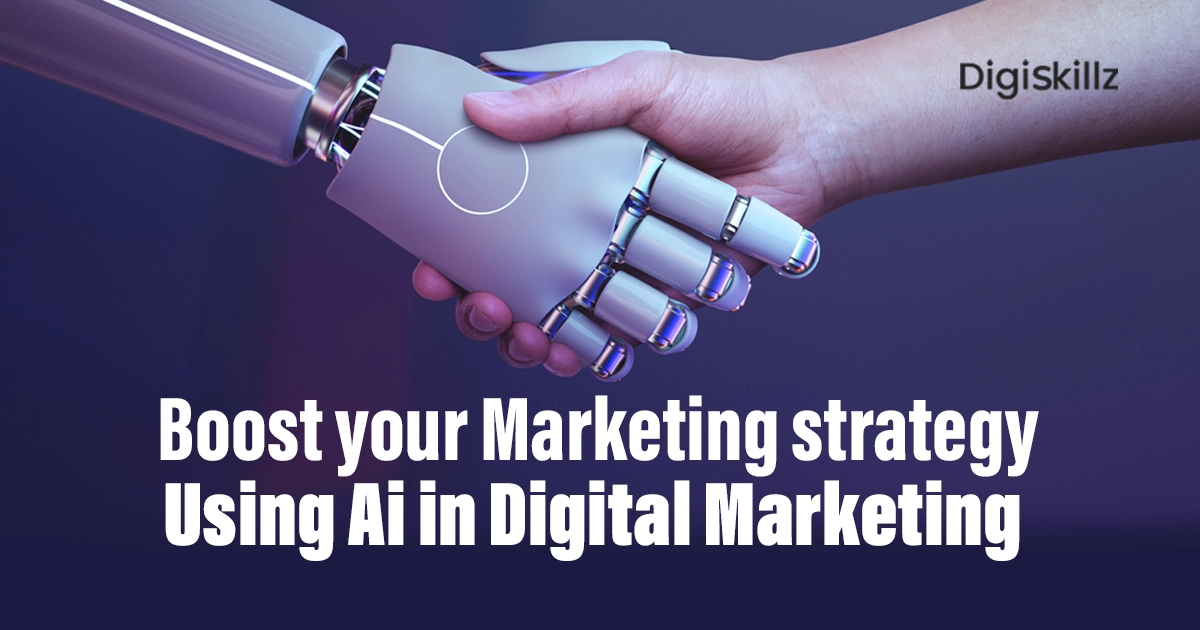
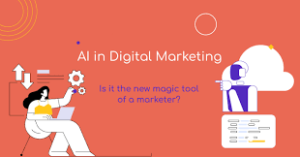
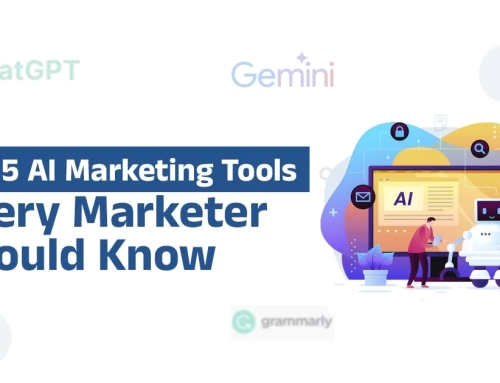

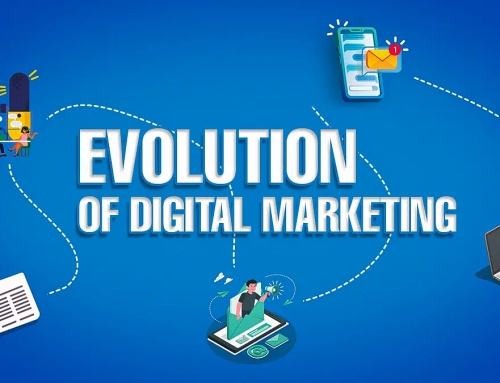
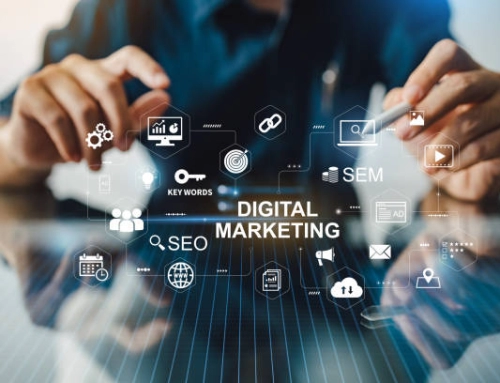

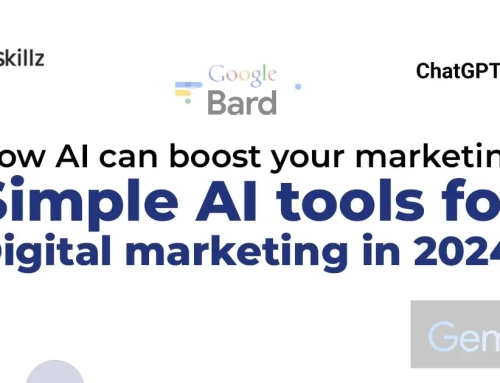
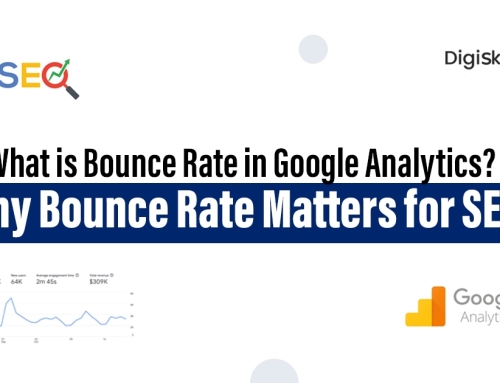
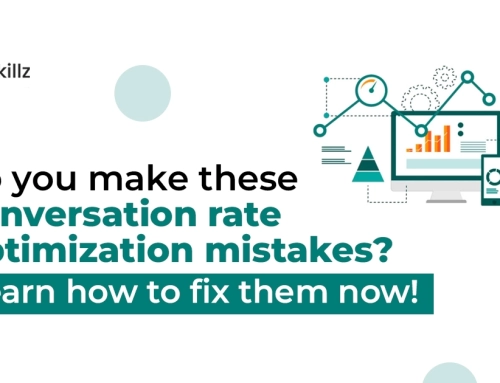
Well done. Thank you for giving me this useful information about digital marketing. Your insights into the evolving landscape of digital marketing and the pivotal role of artificial intelligence were both enlightening and thought-provoking.